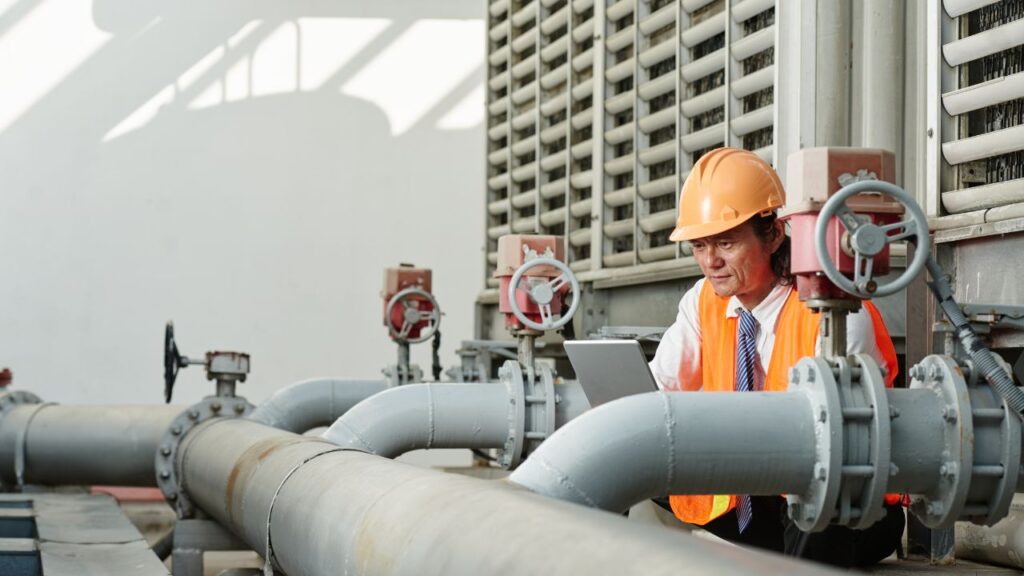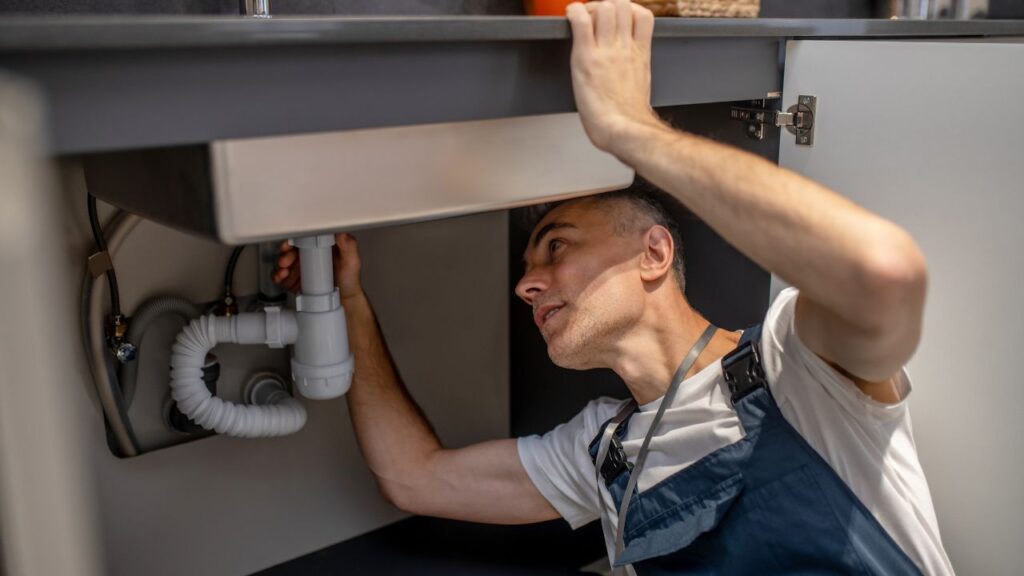A Wining Cost Estimate
That Helps You To Win More Plumbing Projects

When embarking on a new plumbing construction project, accurate cost estimation is crucial for success. Estimating plumbing construction costs involves a detailed analysis of various factors to ensure that projects stay within budget and deliver satisfactory results. In this article, we will explore the key aspects of estimating plumbing construction costs and provide valuable insights for achieving accurate estimates.
Plumbing construction costs are influenced by several factors that need to be taken into account during the estimation process. These factors include the complexity of the project, the type of plumbing systems required, the size of the building, and the specific materials and equipment needed. By understanding these factors, estimators can create a comprehensive picture of the project’s cost requirements.

Accurate cost estimation is essential because it sets the foundation for project planning, budgeting, and resource allocation. A well-estimated plumbing construction cost ensures that all necessary resources are accounted for, preventing unexpected financial setbacks during the execution of the project.

To estimate plumbing construction costs effectively, it is important to gather comprehensive project information. This includes architectural drawings, specifications, and any additional requirements or preferences from the client. With this information in hand, estimators can break down the cost components into labor, materials, and equipment.
Labor costs account for a significant portion of plumbing construction expenses. Estimators must consider the number of workers required, their skill levels, and the estimated time needed to complete specific tasks. It is essential to factor in local labor rates and any union or prevailing wage requirements when estimating labor costs accurately.
Materials, such as pipes, fittings, fixtures, and other plumbing components, contribute significantly to the overall cost. Estimators must consider the quantity and quality of materials needed for the project. Accurate estimation relies on understanding current market prices, supplier discounts, and any potential fluctuations in material costs.
Plumbing construction often requires the use of specialized equipment and tools. Estimators need to identify the necessary equipment and consider factors such as rental costs, maintenance expenses, and fuel consumption. Accurate estimation of equipment costs helps avoid surprises during the project execution phase.
Several factors can influence plumbing construction costs. It’s important to consider these factors during the estimation process to ensure accurate cost projections. Some of the key factors include:
The scope and complexity of the plumbing construction project play a significant role in determining costs. Larger projects with intricate plumbing systems and multiple stories will generally require more materials, labor, and time, resulting in higher costs.
The size and layout of the building directly impact plumbing construction costs. Larger buildings typically require more extensive plumbing networks, which can increase material and labor expenses. Additionally, complex layouts with multiple floors, unique architectural designs, or special requirements can further affect costs.

The choice of materials for the plumbing system can significantly impact costs. High-quality materials may have a higher upfront cost but can offer better durability and longevity. On the other hand, opting for cheaper materials may reduce initial expenses but could result in higher maintenance and replacement costs in the long run.
Compliance with local building codes and regulations is essential in plumbing construction. These requirements can vary from one jurisdiction to another and may affect the selection of materials, installation techniques, and overall project costs.
Geographic location can influence plumbing construction costs due to variations in labor rates, availability of materials, and local market conditions. Areas with higher costs of living or remote locations may experience increased expenses for labor and material transportation.
The complexity of the plumbing systems required for the project can affect costs. Advanced systems, such as those incorporating smart technologies or energy-efficient features, may require specialized expertise and higher-cost components.
The timing of the plumbing construction project can also impact costs. During peak seasons when construction activity is high, labor and material costs may increase. It's important to consider the timing and plan accordingly to mitigate potential cost fluctuations.
Maximize your plumbing business’s potential with our competitive financing options

Accurately estimating material costs is crucial for budgeting a plumbing construction project. To estimate material costs effectively, consider the following steps:
Begin by creating a comprehensive list of all the materials required for the plumbing project. This list should include pipes, fittings, valves, fixtures, connectors, adhesives, and any other necessary components. Specify quantities based on the project plans and specifications.
Once you have the material list, research and compare prices from different suppliers or vendors. Take into account factors such as quality, availability, and reliability of the suppliers. Consider obtaining multiple quotes to ensure competitive pricing.
Multiply the quantities of each material by its respective unit cost. Sum up the costs of all the materials to obtain the total material cost. It's advisable to include a contingency factor to account for unforeseen changes or adjustments during the project.
In today's environmentally conscious world, it's essential to consider sustainable alternatives when estimating material costs. Explore options such as eco-friendly pipes and fixtures that promote water conservation and energy efficiency. While these alternatives may have slightly higher upfront costs, they can lead to long-term savings and environmental benefits.
Labor costs make up a significant portion of plumbing construction expenses. To estimate labor costs accurately, follow these steps:
Assess the labor requirements based on the project complexity, size, and timeline. Consider the number of plumbers, pipefitters, and helpers needed to complete the project efficiently.
Research and gather information about the prevailing labor rates in the area where the project will be executed. Labor rates can vary based on location, skill level, and market demand.

Multiply the estimated labor hours required for the project by the respective labor rates. Sum up the labor costs for all the individuals involved in the plumbing construction. It's important to include any overtime or additional costs associated with specialized tasks.
When estimating labor costs, take into account the skill level and experience of the workers. Highly skilled and experienced professionals may command higher rates but can contribute to a smoother and more efficient construction process, potentially saving time and reducing overall costs.
Incorporate costs associated with training and safety measures. Ensure that workers receive appropriate training and certifications to handle the specific requirements of the plumbing construction project. Safety protocols and equipment should also be accounted for to maintain a secure working environment.

Estimating plumbing construction costs can be challenging due to various factors that may impact the final expenses. It is essential to be aware of these challenges and take appropriate measures to overcome them effectively.
The construction industry is dynamic, with market conditions constantly evolving. Fluctuations in material prices, labor rates, and availability of skilled workers can significantly impact cost estimation. Estimators need to stay updated on market trends and make adjustments accordingly to ensure accurate estimates.
Plumbing construction projects often encounter unforeseen complexities during the execution phase. Structural issues, changes in design requirements, or encountering unexpected obstacles can affect both time and cost estimates. Estimators should factor in a contingency buffer to account for these potential challenges.
Client preferences, design modifications, or changes in project requirements can lead to scope changes and variations. Estimators must carefully manage and communicate these changes to avoid cost overruns. Clear documentation, regular communication, and proactive change management strategies are vital in maintaining accurate estimates.
To illustrate the estimation process, let’s consider a case study of a commercial building project. The project involves installing a complex plumbing system in a five-story office building.
The scope of the project includes water supply, drainage, and sewage systems. The complexity arises from the unique architectural design, requiring precise pipe routing and advanced fixtures.
A detailed material list is prepared, including copper pipes, PVC pipes, fittings, valves, fixtures, and connectors. After obtaining quotes from multiple suppliers, the total material cost is estimated at $50,000, including a contingency factor of 10%.
Based on the project requirements, it is determined that six plumbers, four pipefitters, and two helpers are needed. After researching local labor rates, the estimated labor cost for the project is $80,000.
Overhead costs, including equipment maintenance, insurance, permits, administrative expenses, and project management, are calculated to be $15,000.
Considering specialized contractors, testing and inspections, waste disposal, and contingencies, an additional expense budget of $10,000 is allocated.
By adding up the material costs, labor costs, overhead costs, and additional expenses, the total estimated cost for the plumbing construction of the commercial building is $155,000.
Estimating new plumbing construction costs is a critical step in ensuring a successful project within budgetary constraints. By understanding the factors influencing costs, accurately estimating materials and labor, considering overhead expenses, and accounting for additional project-specific requirements, you can create a comprehensive and reliable cost estimate. By implementing cost-effective strategies and collaborating with professionals, you can optimize your plumbing construction project and achieve long-term satisfaction.
Cost estimates for plumbing construction projects can vary based on multiple factors. While efforts are made to provide accurate estimates, unforeseen circumstances, changes in project scope, or market fluctuations can impact actual costs. It’s essential to regularly review and update estimates throughout the project.
Opting for low-quality materials may reduce upfront costs but can lead to higher maintenance, repairs, and potential system failures in the long run. It’s advisable to strike a balance between cost and quality to ensure durability and minimize future expenses.
Depending on your location, there might be government incentives, grants, or tax credits available for adopting energy-efficient plumbing technologies and sustainable practices. Research local programs and consult with professionals to explore potential incentives.
To find reliable plumbing contractors, seek recommendations from trusted sources, such as architects, builders, or industry professionals. Conduct thorough interviews, check references, and evaluate their experience and expertise before making a decision.
Having a contingency budget is crucial to accommodate unexpected changes, delays, or additional work that may arise during the plumbing construction project. Regular communication and collaboration with contractors and professionals can help in efficiently managing such situations.
Here I am going to share some steps to get your plumbing cost estimate report.
You can send us your plan on info@estimatorflorida.com
Before starting your project, we send you a quote for your service. That quote will have detailed information about your project. Here you will get information about the size, difficulty, complexity and bid date when determining pricing.
We do plumbing cost estimating and prepare a detailed report for your project. At last you finalize the report and finish the project.
561-530-2845
info@estimatorflorida.com
Address
5245 Wiles Rd Apt 3-102 St. Pete Beach, FL 33073 United States
561-530-2845
info@estimatorflorida.com
Address
5245 Wiles Rd Apt 3-102 St. Pete Beach, FL 33073 United States
All copyright © Reserved | Designed By V Marketing Media | Disclaimer
IMPORTANT: Make sure the email and cell phone number you enter are correct. We will email and text you a link to get started.
By clicking “I Agree” above you give Estimate Florida Consultin express written consent to deliver or cause to be delivered calls and messages to you by email, telephone, pre-recorded message, autodialer, and text. Message and data rates may apply. You are able to opt-out at any time. You can text STOP to cancel future text messages.